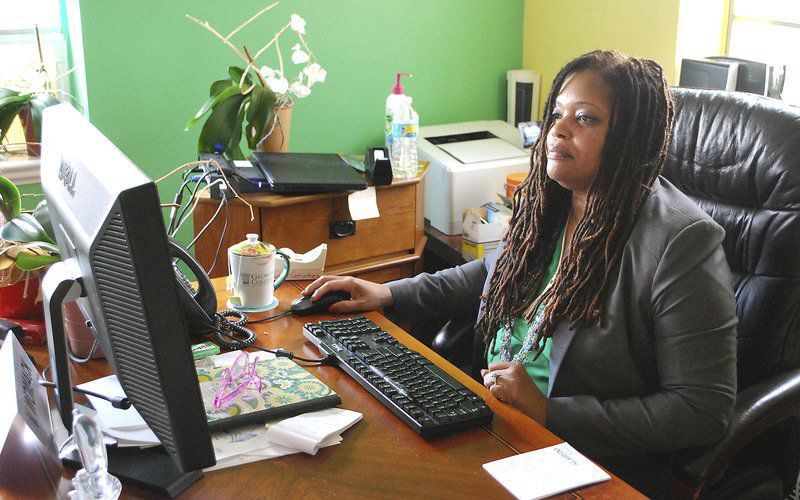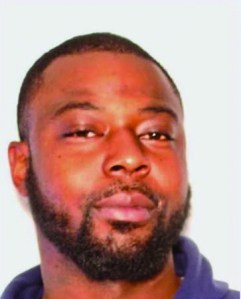GC professor utilizes upbringing to inspire next generation
Published 8:30 pm Friday, February 10, 2017

- Will Woolever | The Union-RecorderDr. Veronica Womack, chief diversity officer at Georgia College in Milledgeville, works just blocks from where Georgia leaders voted to secede from the Union in 1861.
Dr. Veronica Womack has dedicated her life to equality, education and defending the rights of the disenfranchised.
From a simple childhood living off the land in Alabama’s Black Belt region to a whirlwind academic career that eventually brought her to Milledgeville’s Georgia College campus, Womack has more than experienced her share of different voices and perspectives.
Trending
Now the university’s chief diversity officer after 15 years at GC, Womack stands in a unique position to share her experiences through the lens of African-American history in America.
“I grew up in Greenville, Ala., which is about an hour from Montgomery and about 45 minutes from Selma — a very historic area of Alabama,” said Womack from her bright-colored office inside GC’s Ann Simpson-Smith House. “We really had an opportunity to love both our family and the land, and I was fortunate enough to know my great-grandparents, my grandparents, older relatives and a lot of older people in the community. As a young person, I spent a lot of my time with elderly people who were fantastic storytellers, and through those stories I learned a lot about history, my community and about my family.”
While Womack spent her childhood surrounded by the wisdom of her older relatives, not every part of her childhood was easy. When she was just 7 years old, her father died from complications sustained during the Vietnam War, leaving Womack and her mother alone.
“My mother was a very hard worker, and she really instilled in me the importance of education and family,” Womack said. “With me being in a single parent home, I had to take on a lot of responsibility, so that was just how I grew up.”
After graduating from high school, Womack attended the University of Alabama, playing the alto saxophone in the U of A marching band. Eventually earning an undergraduate degree in communications, a master’s in public administration and a doctorate in political science, Womack still felt a strong connection to the region where she grew up. After hearing some in the ivory tower suggest that the widespread poverty in the Black Belt stemmed from little more than the laziness of its people, Womack dedicated herself to studying and improving the conditions of the place she still calls home.
“I met a couple of people through my studies that were not as enamored with the Black Belt as I was,” Womack recalled of her former classmates and professors. “That just made me even more determined to do research in the area. I worked for a nonprofit organization called the West Alabama Skills Consortium, which was a Department of Labor demonstration project. … In West Alabama, as in most of the Black Belt, there are a great number of people who haven’t completed high school and whose skill sets may not be competitive in today’s job market, and the project was supposed to assist them in developing skills that would be useful as they applied for new jobs.”
Trending
Just a year after Womack joined the consortium, the U.S. Department of Labor chose not to renew its funding for the WASC, and Womack suddenly found herself out of work. No less determined to educate people about those from contrasting backgrounds, and without a reliable avenue to help those from her Black Belt home, Womack came across a job opening for an assistant professorship at Georgia College.
Now the university’s chief diversity officer, Womack’s Office of Inclusive Excellence oversees all matters of diversity and cultural education at GC. Among its many events and programs was last month’s MLK Jr. Community Breakfast, in which public school students and community figures gathered together to discuss the legacy of Martin Luther King through his famous “Where Do We Go from Here?” speech. In overseeing all matters of equality and diversity at GC, Womack has made it her mission to educate her students about the wide range of cultural perspectives — not only at the university but also in the wider world.
“African-American people have been able to overcome and lead lives that their ancestors could only imagine, that could only be made possible in a country like this,” Womack said. “Even in my own personal story, just a few generations ago my ancestors were bought and sold, but through an extraordinary turn of events, I’m able to be a chief diversity officer at a university just a couple of blocks away from where the [Civil War] secession conference took place. I think that through the African-American experience you really see the dreams and the hopes of all American people. I think that’s the importance of Black history.”





